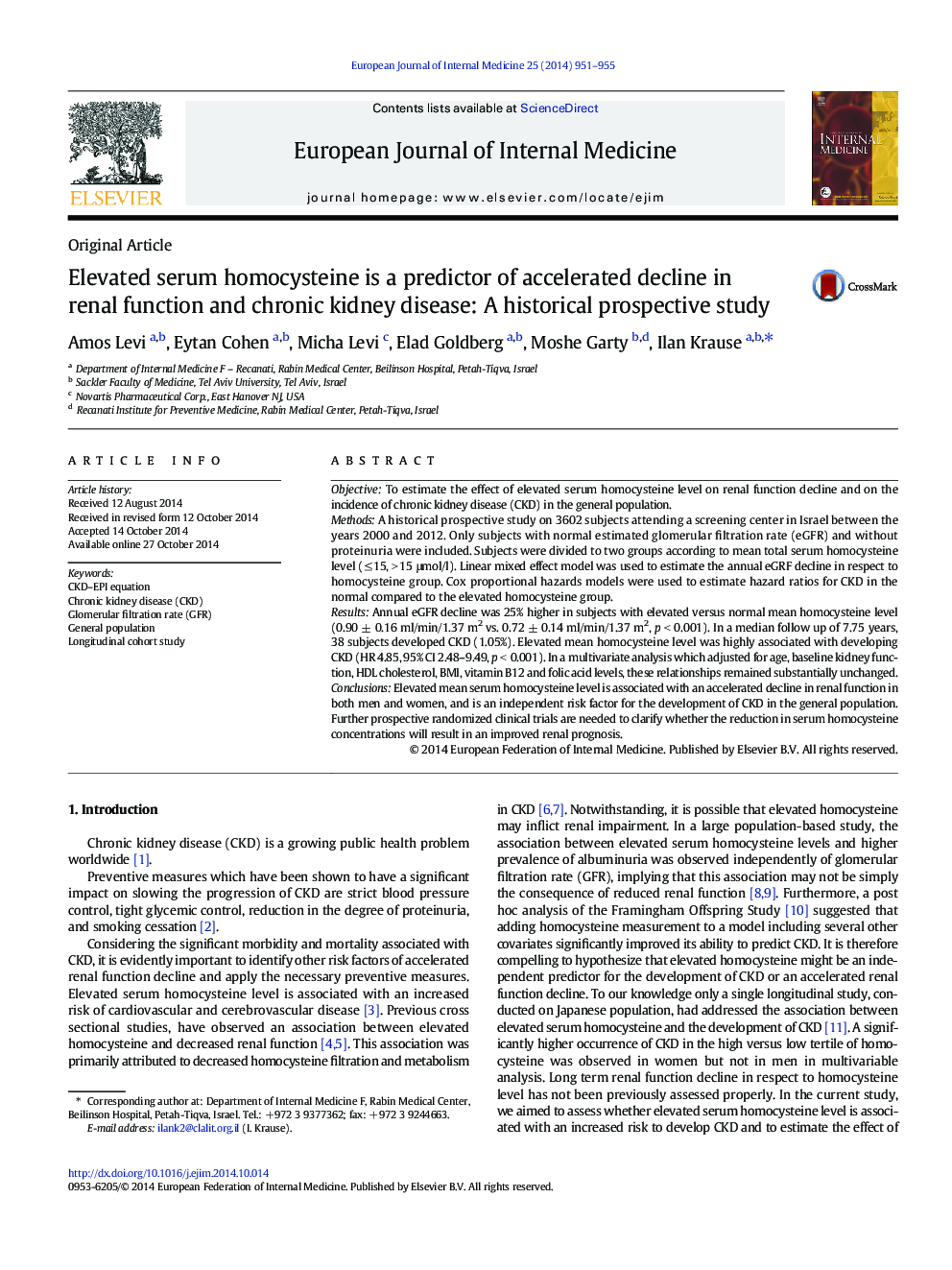| Article ID | Journal | Published Year | Pages | File Type |
|---|---|---|---|---|
| 3466406 | European Journal of Internal Medicine | 2014 | 5 Pages |
•We studied the effect of elevated serum homocysteine on renal function.•Subjects with preserved renal function attending annual screening were included.•Annual eGFR decline was 25% higher in subjects with elevated homocysteine.•Elevated serum homocysteine level was highly associated with developing CKD.•Our results suggest that elevated serum homocysteine may inflict renal damage.
ObjectiveTo estimate the effect of elevated serum homocysteine level on renal function decline and on the incidence of chronic kidney disease (CKD) in the general population.MethodsA historical prospective study on 3602 subjects attending a screening center in Israel between the years 2000 and 2012. Only subjects with normal estimated glomerular filtration rate (eGFR) and without proteinuria were included. Subjects were divided to two groups according to mean total serum homocysteine level (≤ 15, > 15 μmol/l). Linear mixed effect model was used to estimate the annual eGRF decline in respect to homocysteine group. Cox proportional hazards models were used to estimate hazard ratios for CKD in the normal compared to the elevated homocysteine group.ResultsAnnual eGFR decline was 25% higher in subjects with elevated versus normal mean homocysteine level (0.90 ± 0.16 ml/min/1.37 m2 vs. 0.72 ± 0.14 ml/min/1.37 m2, p < 0.001). In a median follow up of 7.75 years, 38 subjects developed CKD (1.05%). Elevated mean homocysteine level was highly associated with developing CKD (HR 4.85, 95% CI 2.48–9.49, p < 0.001). In a multivariate analysis which adjusted for age, baseline kidney function, HDL cholesterol, BMI, vitamin B12 and folic acid levels, these relationships remained substantially unchanged.ConclusionsElevated mean serum homocysteine level is associated with an accelerated decline in renal function in both men and women, and is an independent risk factor for the development of CKD in the general population. Further prospective randomized clinical trials are needed to clarify whether the reduction in serum homocysteine concentrations will result in an improved renal prognosis.
